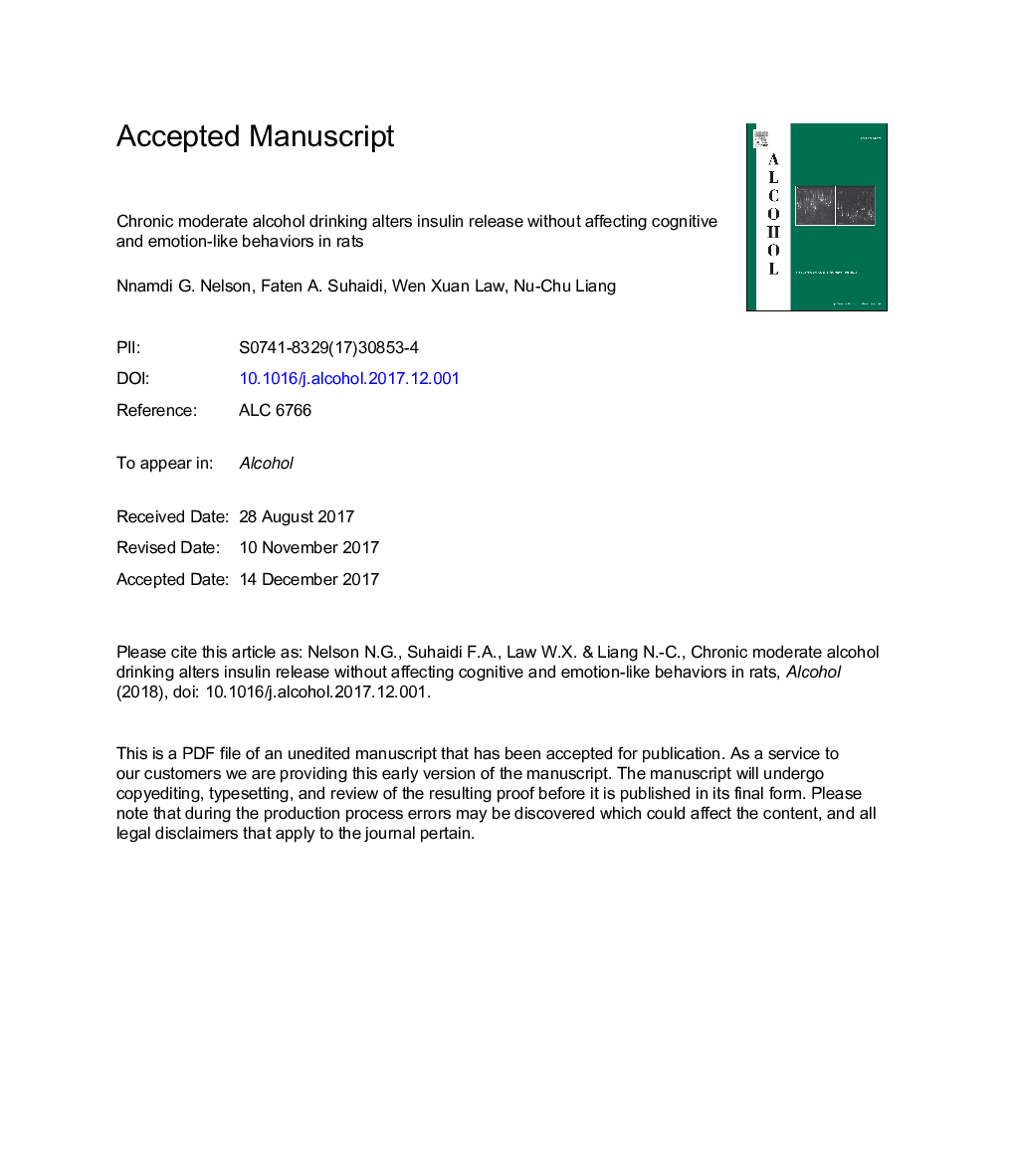| Article ID | Journal | Published Year | Pages | File Type |
|---|---|---|---|---|
| 7501350 | Alcohol | 2018 | 46 Pages |
Abstract
Because the consumption of alcoholic beverages prevails in society, its effects on diabetes risk is a subject of interest. Extant literature on this issue often disagrees. Here, we probed the effects of chronic moderate ethanol consumption on glucose metabolism in rats. The effect of chronic moderate alcohol drinking on depression- and anxiety-like behaviors and memory was also explored. Adolescent male and female Long-Evans rats consumed saccharin-sweetened 5% (1 week) and 10% ethanol (7 weeks) under a 7.5-h/day (Monday-Friday) access schedule. This exposure was followed by sucrose preference and elevated plus maze (EPM) tests during an intervening week, before a 6-week intermittent-access (Monday, Wednesday, Friday) to 20% unsweetened ethanol in a 2-bottle choice drinking paradigm was implemented (EtOH). A free-feeding control group received water (Water). Our prior work revealed that voluntary ethanol consumption decreases food intake in rats. Hence, a second control group that received water was mildly food-restricted (FR), and their average body weight was matched to that of the EtOH group. During the week following week 6 of intermittent-access to 20% ethanol, rats were submitted to sucrose preference, EPM, and novel object recognition (NOR) tests. Insulin response to a glucose load was subsequently assessed via an oral glucose tolerance test (OGTT). Rats attained and maintained blood ethanol concentrations of â¼55Â mg/dL that correlated with the dose of sweetened 10% ethanol ingested. Relative to intake by Water controls, EtOH rats consumed less chow. There was no body weight difference between both groups. Neither sex of EtOH rats showed increased depression- and anxiety-like behaviors, as respectively measured by sucrose preference and EPM, nor did they show deficit in object recognition memory during abstinence. Male EtOH rats, however, showed signs of reduced general activity on the EPM. During OGTT, male EtOH rats showed a time-dependent potentiation of insulin release for proper glucose clearance. Such an effect was not observed in females. This landmark study shows that chronic moderate alcohol consumption can have negative metabolic consequences in the absence of overt behavioral deficits, especially in males.
Keywords
Related Topics
Life Sciences
Biochemistry, Genetics and Molecular Biology
Biochemistry
Authors
Nnamdi G. Nelson, Faten A. Suhaidi, Wen Xuan Law, Nu-Chu Liang,
